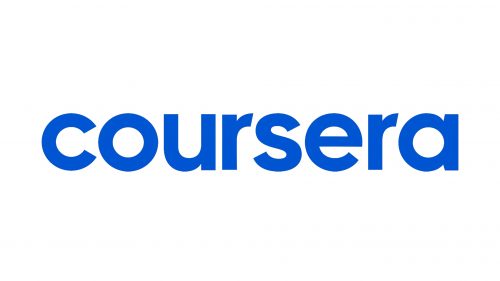Coursera is an American eCoursera Logolectronic resource, launched in 2012. It’s an aggregator of online courses prepared by individual professors or educational organizations. These courses are made by professionals from large institutions specializing in various subjects of science. The student who passed the course on Coursera can also pay for a professional certificate, able to improve his portfolio and raise his chances to get a good job.
Meaning and history
From the start, Coursera was a platform where everyone could seek knowledge and enlightenment. Andrew Ng and Daphne Koller, the carriers of the whole affair, clearly understood the fact that the classic education in universities is not available for most of the world, but everyone seeks for an education. They decided to develop a free electronic learning platform with courses, split in several sectors, each one about its own theme. As it is an aggregator of courses, this name, ‘Coursera’, is very suitable to the brand image and the company operations style.
What is Coursera?
Coursera is an educational platform, founded in 2012 in the United States. This is one of the first and largest educational systems that provide professional certificates and degrees for the students who passed the single courses or groups of courses named Specialties. The courses are prepared by worldwide known organizations, which include business schools, universities, et cetera. Their mission is described in a simple statement – ‘Education for everyone’. According to this mission, their courses are free, but you’ll have to pay if you want to receive the certificate.
2012 – 2020
Originally, Coursera had a nameplate as the logo. What’s distinctive in this logo is the way the two first letters were combined. The ‘C’ character intertwined the ‘O’ letter, so together formed an infinity sign supposed to feature a limitless amount of knowledge, which people could possibly have.
2020 – today
In 2020, Coursera has unveiled a new corporate identity, which is supposed, according to the words by representatives of the company, ‘to reflect its growth’. Now, the infinity icon was removed, and there was just an inscription with the name of the brand. Sometimes, they also put an ‘Education for everyone’ note below the name.
Font
The fonts used to represent the names in two logotypes differ in comparison with each other. The variant used in 2012 had bold lines of sans-serif letters and quite a small space between them. The case of these letters was not the same: the ‘U’ character clearly had an uppercase style, while all others were lowercase. Also, both ‘r’ characters of the 2012 logo were slightly entwining the following letters – their ends had a circular shape.
In contrast, the 2020 edition of the inscription has a fully lowercase sans-serif script with wider letters. The font became less bold than in the previous logo, and the whole inscription became smaller. The tails of both ‘r’ letters are also slightly clipped.
Color
The color palette used in the Coursera logo reflects two main shades: white and bright blue. Usually, there is a white name standing on the blue background. In certain situations, they switch aside the coloring, so the blue name is located on the white back. This is practiced on the main page of their website, for example.










